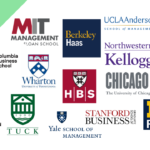The Federal Reserve interest rate that influences global lending rates is higher than it’s been in 23 years. But that isn’t keeping JPMorgan commercial banking clients from feeling optimistic.
In a survey of more than 100 founders and senior business leaders of firms that each generate as much as $2 billion, more than 90% said they were neutral to optimistic about the U.S. economy over the coming year.
The survey is far from an anomaly, according to the head of JPMorgan’s commercial banking research, Ginger Chambless, who told Fortune in an interview on Monday that the responses indicate broader trends in the bank’s commercial banking business. Survey respondents said three main factors drove their optimism: expected market expansion, introductions of new products, and planned adoption of AI.
“What they’re seeing on the ground in their own businesses is giving them optimism for the outlook for their own growth trajectory—and their own revenues and profits,” says Chambless. “And that’s really the bottom line for these business leaders.”
JPMorgan’s commercial banking business generated $15.5 billion in revenue last year, a 35% year-over-year gain, and it posted $3.9 billion in the first quarter of 2024, a 12.5% increase from the same quarter in 2023. (JPMorgan’s second-quarter earnings call is scheduled for Friday.)
Despite citing several business concerns, 28% of respondents said they expected current market expansions to grow over the coming year, 26% expected to launch a new product, and 25% were planning to adopt or expand usage of AI.
Chambless says consumers, businesses, and markets are all handling recent inflation rates as high as 9.1% better than expected and that “tight labor markets” free them up to think more proactively. Specifically, midsized commercial businesses appear more willing to try new things as they come to terms with what’s increasingly looking like a soft landing from record-high inflation, which after falling to 3.1% in January is back up to 3.3%.
Though high rates tend to result in fewer mergers and acquisitions, 34% of leaders surveyed said they expect to engage in M&A over the next 12 months. As interest rates climbed over the past two years, M&A deals fell 32% from an all-time-high, according to the Institute for Mergers, Acquisitions, and Alliances. Founders looking ahead at what increasingly looks like at least one rate reduction this year, with more to come, are likely looking to close numerous deals that were “pent-up” as rates stayed high, according to Chambless.
Reasons for optimism
The overall positive outlook is surprising for a number of reasons. First, in a similar JPMorgan poll from January, only 67% of business leaders expressed neutral or optimistic expectations for 2024. The optimism comes in the face of numerous—and not small—concerns. Thirty-three percent of leaders said they’re worried about the impact of interest rates on the cost of debt., with the Federal Funds Effective Rate currently at 5.33%, a level not seen since February 2001’s 5.49%. Additionally, 25% of respondents expressed concern over geopolitical conflicts, and 25% cited upcoming elections.
Firmly in the category “it’s all in the context,” 18% of respondents said they were planning to add employees over the coming year. “It’s still directionally indicative that midsized business leaders are looking to maintain or grow their labor forces,” says Chambless. “Which, again, is a sign of optimism on the outlook or plans for growth—and we continue to see midsized businesses be very resilient.” On Friday, the Bureau of Labor Statistics reported that while non-farm payroll employment had increased by 206,000 last month, unemployment remained at 4.1%.
Despite the respondents’ optimism, Chambliss says uncertainty remains higher than normal. “What we think is best for midsized businesses, and probably businesses in general, is to take opportunities to de-risk their exposures. So if that’s interest rates, if that’s commodity prices, de-risking is something that can really benefit the company in many ways—and let them focus on the the basic aspects of their business.”
The survey was conducted last month at JPMorgan’s ninth annual Founders Forum in New York City. The event featured 160 founders and business leaders from industries including technology, retail, food and beverage, and healthcare whose firms generated annual revenue ranging from $20 million to $2 billion. 115 people participated in the survey.




